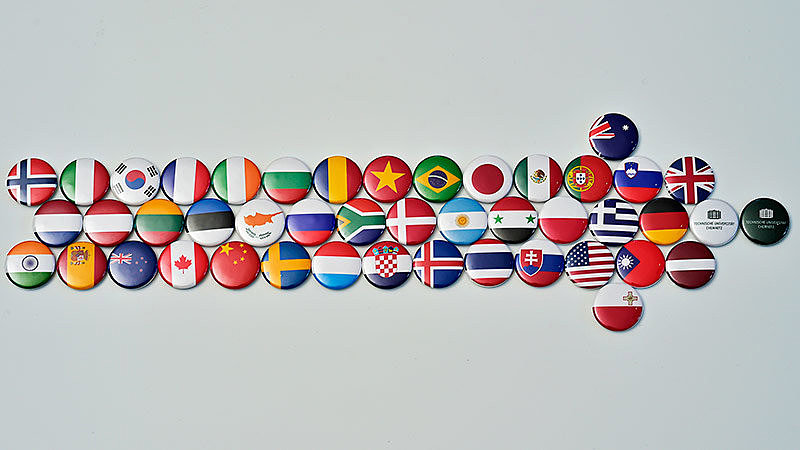All-time high in the acquisition of DAAD funds
Chemnitz University of Technology generates more than one million euros for the first time from DAAD project funding
-

Chemnitz University generates more than one million euros for the first time from DAAD project funding. Photo: International Office
In 2017, Chemnitz University of Technology received more funding than ever before from programmes of the German Academic Exchange Service (DAAD). With a total of 1.44 million euros, the DAAD's funding record is an all-time high, representing an increase of 16 percent or more than 190,000 euros compared to 2016.
The largest share of DAAD funding is accounted for by so-called project and programme funding: Here, Chemnitz University of Technology was able to exceed the one million euro mark for the first time and raise 1,188,000 euros. Compared to 2011, project funding has even more than doubled: "With the funds raised from DAAD programmes, Chemnitz University of Technology, as one of the most international universities in Germany, can significantly expand its internationalisation measures," says Prof. Dr. Maximilian Eibl, Vice-President for Academic and International Affairs, emphasising the importance of DAAD funds. "The promotion of mobility through the Erasmus programme, which promotes our students' stays abroad in Europe, is particularly important on the one hand, as are the scholarship and support funds to support international students at our university," continued Eibl. At the professorships, DAAD funding enables, among other things, the supervision of international doctoral students, the organisation of international events or joint research projects with partners all over the world.
In addition to project funding, the DAAD also offers individual funding options. Individuals can apply directly to the DAAD for these. The various programmes can be found in the scholarship database for Germans who wish to complete a period of study or an internship abroad and for international students, doctoral candidates, postdocs and university lecturers who wish to come to Germany.
Further country-specific funding opportunities are also available from the DAAD's worldwide branch offices and information centres. An overview is available online: http://bit.ly/2Es5PUu.
While the individual funding programmes are advertised throughout the year, the DAAD publishes most of the calls for project funding on three central dates: Early April, mid-June and early October. The International Office provides applicants with the most important information on the calls for proposals on its website.
In addition, the International Office provides extensive online information on the aforementioned website for the preparation of DAAD applications and the administration of approved projects. "Especially those who submit an application to the DAAD for the first time should make use of the expertise available and contact the International Office at an early stage. They will receive feedback on project ideas eligible for funding, on the DAAD's funding programmes and comprehensive support in financial planning," says Eibl about the International Office's service. The International Office also provides advice and support during project implementation and accounting.
Further information on DAAD funding programmes can be obtained from the Deputy Head of International Office Annett Müller, phone 0371 531-37922, e-mail annett.mueller@iuz.tu-chemnitz.de.
Matthias Fejes
17.10.2018
- Naturwissenschaften
- , Mathematik
- , Maschinenbau
- , Elektrotechnik und Informationstechnik
- , Informatik
- , Wirtschaftswissenschaften
- , Philosophische Fakultät
- , Human- und Sozialwissenschaften
- , Universitätsrechenzentrum
- , Universitätsbibliothek
- , Zentrum für Lehrkräftebildung und Bildungsforschung
- , Schüler
- , Studierende
- , International
- , Studieninteressierte




